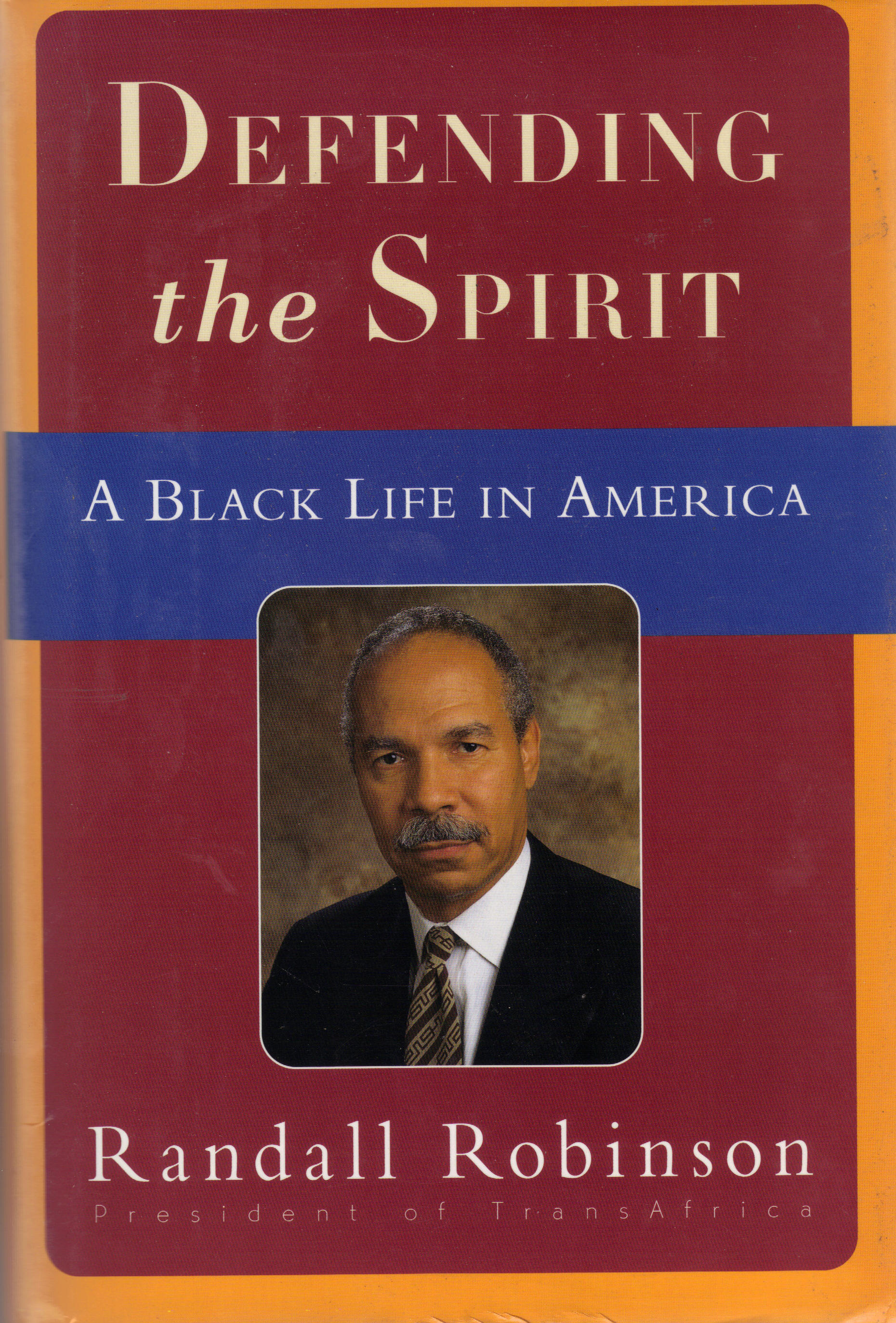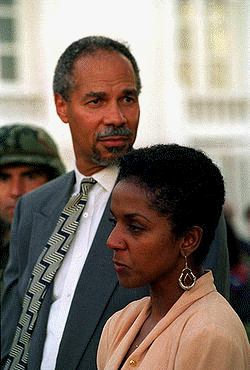
Randall Robinson (6 July 1941- ) is an African-American lawyer, author and activist, noted as the founder of TransAfrica. He is known particularly for his impassioned opposition to South African apartheid, and for his advocacy on behalf of Haitian immigrants and Haitian president Jean-Bertrand Aristide.[1]

Robinson was born in Richmond, Virginia to Maxie Cleveland Robinson and Doris Robinson Griffin, both teachers. The late ABC News anchorman, Max Robinson, was his elder brother. He graduated from Virginia Union University, and earned a law degree at Harvard Law School.[2] He also has an older sister, actress Jewel Robinson and a younger sister, Pastor Jean Robinson. Both sisters live and work in the Washington, D.C. area.
He and his first wife had a daughter, Anike Robinson, who is a teacher and artist, and a son, Jabari Robinson. He is married to Hazel Ross-Robinson, his second wife, and they have a daughter named Khalea Ross-Robinson.[3]
Robinson founded the TransAfrica Forum in 1977, which-according to its mission statement-serves as a "major research, educational and organizing institution for the African-American community, offering constructive analysis concerning U.S. policy as it affects Africa and the African Diaspora (African-Americans and West Indians who can trace their heritage back to the dispersion of Africans that occurred as a result of the Transatlantic slave trade) in the Caribbean and Latin America." [4] He served in the capacity as TransAfrica's president until 2001.[5]
During that period he gained visibility for his political activism, organizing a sit-in at a South-African embassy in order to protest the apartheid era government's policy of segregation and discrimination against black South Africans, a personal hunger strike aimed at pressuring the United States government into restoring Jean-Bertrand Aristide to power after the short-lived coup by General Raoul Cedras, and dumping crates filled with bananas onto the steps of the United States Trade Representative in order to protest what he views as discriminatory trade policies aimed at Caribbean nations, such as protective tariffs and import quotas.
In 2001 he authored a book "The Debt: What America Owes To Blacks," which presented an in-depth outline regarding his belief that wide-scale reparations should be offered to African-Americans as a means of redressing what he perceives as centuries of discrimination and oppression directed at the group.[5] The book argues for the enactment of race-based reparation programs as restitution for the continued social and economic issues in the African-American community, such as a high proportion of incarcerated black citizens and the differential in cumulative wealth between white and black Americans. [6] Although some reviewers praised Robinson for delving into a controversial topic that had not been addressed in the mainstream media, others criticized him for reverse racism, and asserted that his own personal success contradicted the dire portrait he portrayed of the conditions faced by African-Americans living in the United States.
In 2003 Robinson turned down an honorary degree from Georgetown University Law Center.
Robinson will begin teaching at The Pennsylvania State University — Dickinson School of Law in the fall of 2008.
In the same year that this book was published Robinson quit his position as head of TransAfrica and decided to emigrate to St. Kitts - where his wife, who is a member of a prominent Kittitian family, was born - a decision chronicled in his book, "Quitting America: The Departure of a Black Man from his Native Land."
His self-imposed exile-he still keeps a home in the state of Virginia-is caused by what he describes as his antipathy towards America's domestic policies and foreign policy, both of which he believes exploit minorities and the poor.
In September 2005, Robinson wrote in a Huffington Post blog blasting the Bush Administration's handling of the Hurricane Katrina crisis, "It is reported that black hurricane victims in New Orleans have begun eating corpses to survive." Subsequently, Robinson issued a retraction of the claim as it proved unsubstantiated. [7]









